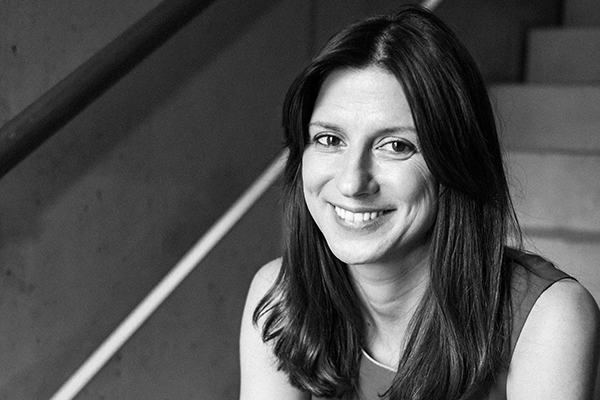It’s time for an enhanced Relationship Banking!
Interview with Jasminka Enderle
Jasminka, you have been working on the project “Client-Dialogue-Tool” since April. Why is the NZBAG developing such a tool?
Enderle: The goal of the Net-Zero Banking Alliance Germany is to enable standardised measurement and management of the climate impact of loan portfolios in line with the Paris climate goals. To this end, methods, minimum requirements and frameworks are being developed and tested at strategic and operational levels. The Alliance is placing an emphasis on near-market activities, as these can drive climate transformation in the real economy and represent significant business opportunities for banks.
Proximity to the market for us means that all client facing staff are enabled to talk about sustainability to their corporate clients. Banks, as risk managers, need to be aware of the sustainability risks of their customers as well as of their impact on the environment. This is also referred to as dual materiality.
At NZBAG, we have set ourselves the goal of empowering every single employee in the corporate banking area to talk to customers about the topic of sustainability. That’s what the Client-Dialogue-Tool is for. This is also important due to the data needed for a Paris aligned portfolio steering. Over time, we can also close the existing data gap. With the tool, we want to support a systematic approach that allows banks to accompany their clients actively in the transition and with a forward-looking approach.

What exactly is the Client-Dialogue-Tool? What questions are put forward?
Enderle: The tool is aimed for corporate client advisors. It currently includes over 70 questions on the client’s climate, environment, social and governance performance, not all of which need to be asked, of course, depending on the preference and experience of the credit institutions. The tool also includes KPIs and time frames, as well as examples of what customer responses might look like in the Energy and Residential Real Estate sectors.
Examples are given of how to evaluate the results of customer meetings. Built-in comparative values help so that customer and bank know how to evaluate customer ambitions in terms of their compatibility with 1.5 degrees maximum temperature increase.
It is particularly important to ask customers about a “transition plan” or sustainability strategy. After all, this is not yet a day-to-day practice, especially among small and medium-sized companies. However, that’s where we have to go. Banks will increasingly want to see their financing decisions underpinned not only by current financial data, but also by robust transition plans.
What are the challenges to implementing such a dialogue in banks?
Enderle: Corporate banking is relationship banking. It is a relationship that has grown over the years, built on reliability and understanding, which has created a foundation of trust. Employees don’t want to jeopardize that relationship by asking questions they don’t understand or can’t answer themselves. That’s why, in my view, the following three points are important: training and skill building, good governance, and a trial-and-error culture to create a structure for a supportive environment.
That translates into a substantial training programme, for a scaled multi year developement of skills and capacities.

“At NZBAG, we have set ourselves the goal of empowering every single employee in the corporate banking area to talk to customers about the topic of sustainability. That’s what the Client-Dialogue-Tool is for.”
When can we expect the first project results?
Enderle: We want to test it first in a pilot with the banks and customers to review the practicality of the questions. I am also very much looking forward to presenting the Client-Dialogue-Tool, probably in November 2022. We will provide initial insights at the Sustainable Finance Summit Germany on October 14, 2022 in Frankfurt.

